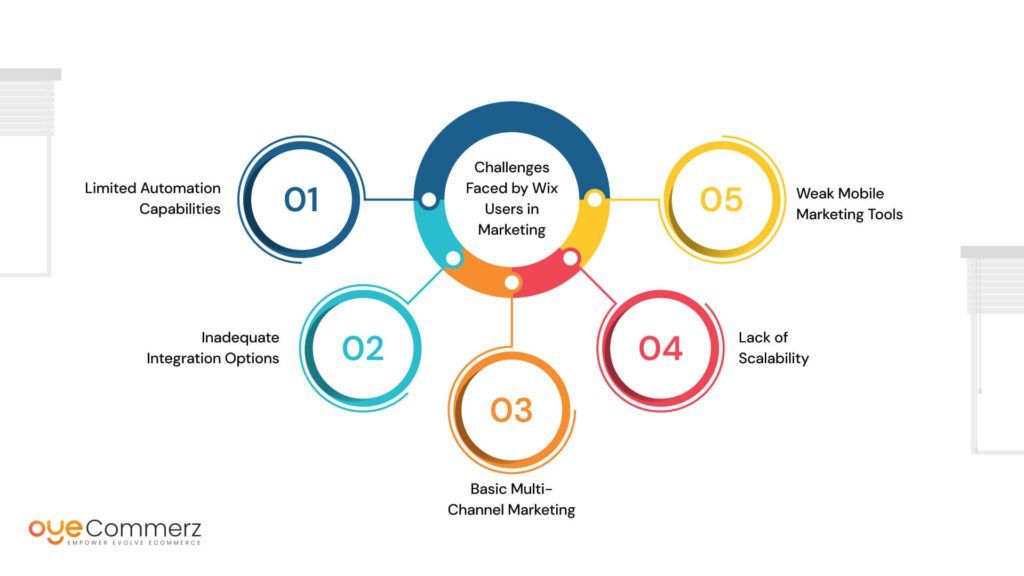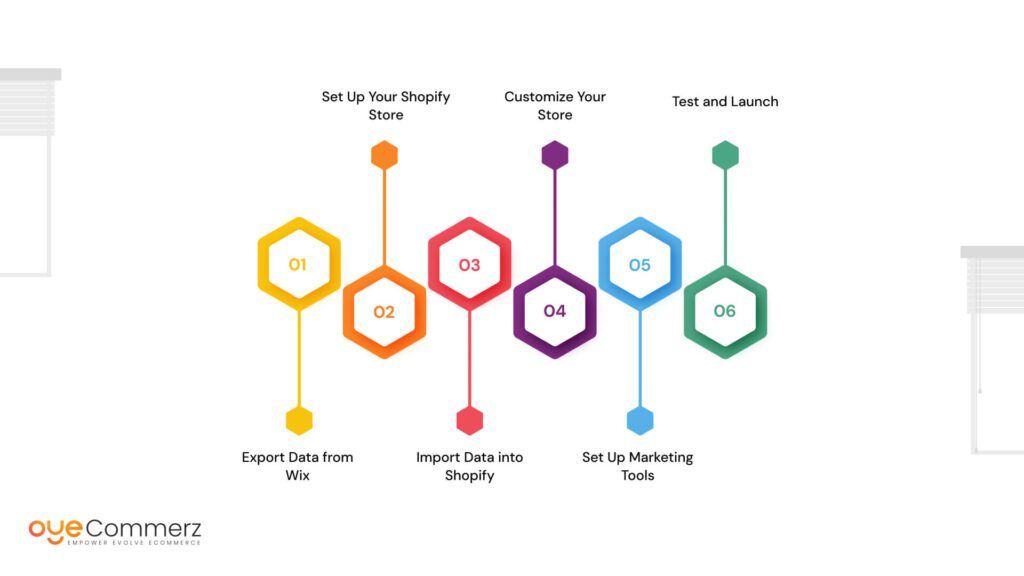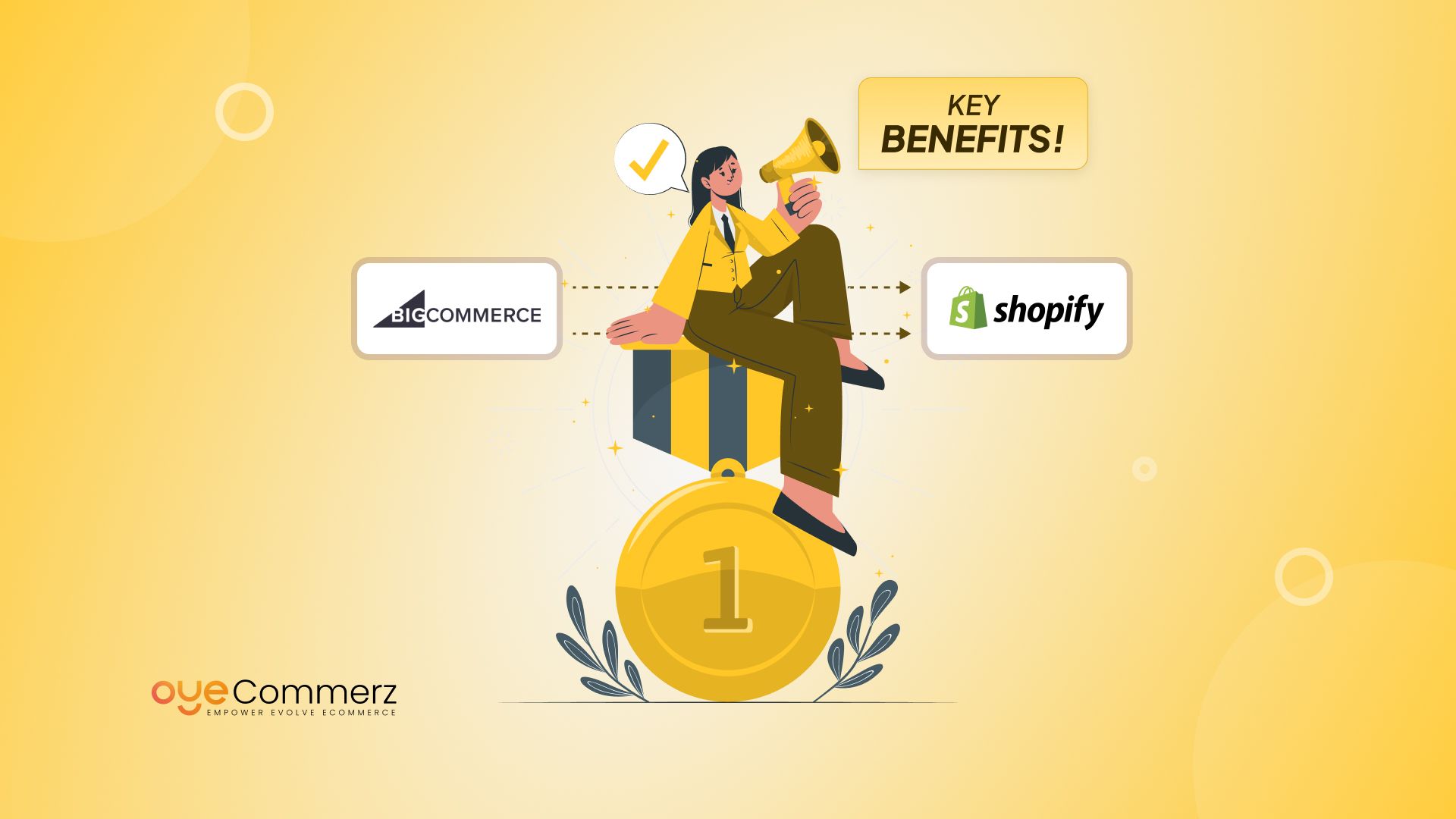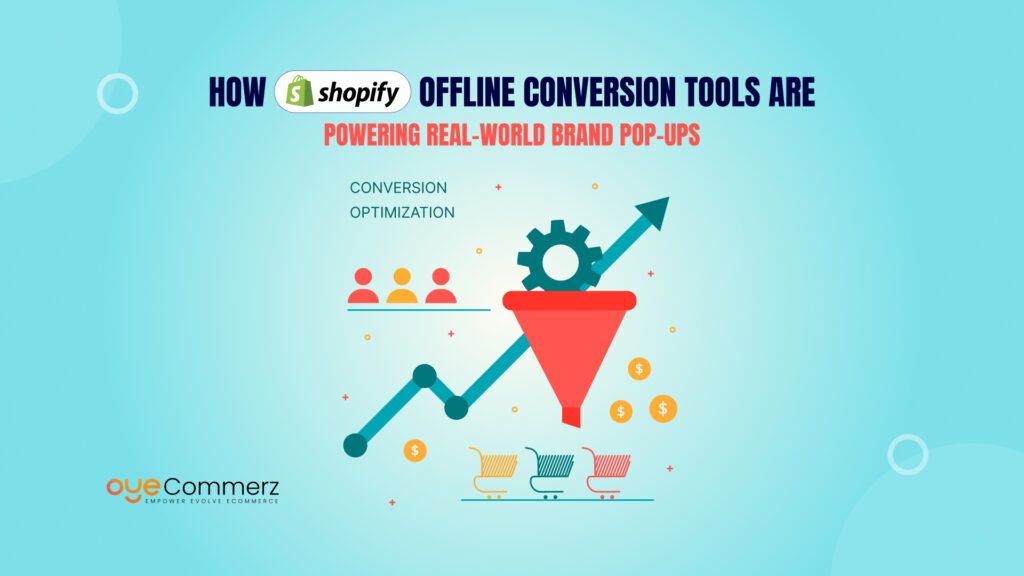Have you ever felt limited by Wix when trying to scale your online store? If so, you’re not alone—businesses that switch from Wix to Shopify often see a increase in conversion rates thanks to Shopify’s advanced e-commerce features.
As an existing Shopify business owner, you already know how powerful Shopify is when it comes to growth, flexibility, and app development. But if you’re still stuck on Wix or considering helping others migrate, understanding the key benefits of switching can make all the difference.
In this blog, we’ll explore the 10 biggest advantages of migrating from Wix to Shopify with Oyecommerz, so you can unlock your store’s full potential and boost your sales in 2025. Let’s dive in!
Table of Contents
TogglePlatform Deep Dive: Understanding Wix and Shopify
Wix – A Good Start, But Limited Horizons
Wix has long been a favorite for individuals and small businesses looking to create a website quickly and affordably. Its drag-and-drop builder offers a beginner-friendly way to design a website without coding knowledge. For those starting their journey in e-commerce, Wix provides basic tools to get an online store up and running. However, as businesses grow, these basic functionalities can become significant roadblocks.
- Intuitive Design, Yet Limited for E-Commerce:
Wix’s simplicity is its strength, but it also becomes a weakness for businesses with complex needs. The platform is better suited for personal blogs or small-scale websites than scalable e-commerce stores. Its e-commerce tools lack the depth required to manage advanced operations such as multi-channel selling or comprehensive inventory tracking. - Customization Challenges:
While Wix offers visually appealing templates, customization options are limited. For example, businesses often find it challenging to create a unique design that aligns perfectly with their branding, as many templates have rigid frameworks. - Scalability Issues:
Wix struggles with scalability, especially when stores experience rapid growth. Adding a large number of products, handling high traffic, or integrating advanced third-party solutions often results in performance hiccups. This makes it less ideal for businesses aiming for long-term expansion. - Integration Limitations:
The Wix app market is not as diverse or robust as Shopify’s. While it offers basic integrations, businesses often find themselves constrained when they need specialized tools for marketing automation, analytics, or customer engagement.
Shopify – Purpose-Built for E-Commerce Excellence
Shopify, on the other hand, is a platform designed specifically to cater to e-commerce businesses. It’s built to handle everything from small startups to massive global brands, offering features that are robust, flexible, and tailored to meet the unique challenges of selling online.
- Scalable Infrastructure for Long-Term Growth:
Shopify’s infrastructure is designed to handle stores of all sizes. Whether you’re managing 10 products or 10,000, Shopify ensures your store remains fast and responsive, even during peak traffic periods. - Extensive App Ecosystem:
Shopify’s app store features thousands of apps that cater to virtually every need. From AI-powered personalization tools to advanced inventory management solutions, Shopify makes it easy to add features to your store without complicated development work. - High-Performance Hosting and Security:
Shopify provides enterprise-grade hosting with fast load times, minimal downtime, and built-in SSL security. This means you can focus on growing your business while Shopify takes care of the technical details. - Adaptability for All Business Models:
Shopify’s flexibility allows it to cater to diverse business models. Whether you’re running a dropshipping operation, selling digital products, or managing a large inventory, Shopify’s ecosystem can adapt to meet your needs.
By understanding these core differences, it becomes clear why businesses are increasingly opting for a Wix to Shopify migration. For growing brands, Shopify is not just a platform but a partner in scaling operations efficiently and effectively.
The Challenges of Scaling an Online Store on Wix
While Wix offers a solid starting point for businesses entering the online marketplace, its limitations become apparent as businesses scale. From performance bottlenecks to feature gaps, the challenges of operating a growing store on Wix can significantly hinder progress. Let’s break down these challenges:
1. Scalability Bottlenecks
Wix is designed for simplicity, but simplicity comes at a cost. As your business grows, the platform’s inability to handle high traffic and extensive product catalogs becomes a major obstacle.
- Traffic Management Issues:
Wix sites often experience slower load times and performance lags during peak traffic periods. This can lead to frustrated customers and lost sales opportunities. - Product Volume Constraints:
Adding a large number of products or variations can make managing the store cumbersome. The platform wasn’t built to handle expansive inventories efficiently. - Lack of Enterprise-Grade Features:
Businesses looking to implement advanced functionalities, like customer segmentation or B2B-specific tools, often find Wix’s capabilities fall short.
2. E-Commerce Feature Gaps
As your operations expand, the need for sophisticated tools becomes evident. Wix’s e-commerce offerings, while sufficient for basic setups, lack the advanced features needed for a competitive online store.
- Inventory Management Limitations:
Wix doesn’t provide robust tools for tracking stock across multiple locations or integrating with suppliers, making it difficult to streamline operations. - Lack of Automation:
Processes like email marketing, cart recovery, and customer engagement require manual effort or third-party tools that aren’t always fully compatible with Wix. - Limited Payment Options:
With fewer payment gateways supported, customers might face restrictions, leading to cart abandonment.
3. Integration Restrictions
Successful e-commerce businesses often rely on third-party integrations to enhance store functionality. Unfortunately, Wix’s ecosystem lacks the depth needed for seamless integrations.
- Fewer Apps Available:
The Wix App Market is relatively small, offering only basic plugins that might not meet the needs of growing businesses. - Compatibility Challenges:
Many advanced e-commerce tools aren’t compatible with Wix, forcing businesses to find workarounds or compromise on features. - Marketing and Analytics Limitations:
Tools for comprehensive marketing campaigns or advanced analytics are often unavailable or limited in functionality.
4. SEO and Performance Issues
A key driver of e-commerce success is visibility, and Wix’s limited SEO capabilities can be a significant disadvantage.
- Basic SEO Tools:
Wix provides only the essentials, making it difficult to optimize for competitive keywords or implement advanced strategies. - Slow Loading Times:
Wix’s hosting infrastructure isn’t designed for high-performance needs, resulting in slower page speeds that can hurt both user experience and search rankings.
5. Custom Design Limitations
Your website’s design is your brand’s identity online, and Wix’s rigid templates make it challenging to create a unique, professional-looking store.
- Limited Flexibility:
While templates are visually appealing, the ability to customize layouts or add unique features is constrained. - No Dynamic Personalization:
Features like AI-powered recommendations or user-specific customizations are missing, which can impact user experience and conversions.
Why These Challenges Matter
For businesses on Wix, these limitations mean wasted time, operational inefficiencies, and missed growth opportunities. This is where a Wix to Shopify migration proves to be transformative, providing a platform that not only addresses these issues but also empowers businesses to thrive.
Shopify: The Ultimate E-Commerce Upgrade

Switching from Wix to Shopify isn’t just about solving existing problems—it’s about unlocking the full potential of your e-commerce business. Shopify is purpose-built for online selling, offering a range of tools and capabilities that empower businesses to grow, scale, and thrive in competitive markets. With access to an expansive app ecosystem of over 8,000 applications, Shopify enables businesses to customize and enhance their online stores to meet specific needs, far surpassing the limited integrations available on Wix. Here’s why Shopify stands out as the ultimate upgrade for businesses considering a Wix to Shopify migration.
1. Built for Businesses Ready to Scale
Shopify’s infrastructure is designed to support businesses of all sizes, from startups to enterprises. It eliminates the scalability bottlenecks that Wix users face by providing a robust platform that grows alongside your business.
- Unlimited Bandwidth and Storage:
Shopify ensures your store remains fast and responsive, even during peak traffic periods. - Effortless Product Management:
Manage large inventories with advanced tools for bulk uploading, categorization, and filtering. - Global Expansion:
Sell to international customers with features like multi-currency support and localized payment gateways.
2. Comprehensive E-Commerce Features
Shopify doesn’t just meet your current needs—it anticipates future ones, offering a suite of tools that help you streamline operations and maximize sales.
- Abandoned Cart Recovery:
Automatically remind customers about unpurchased items, reducing lost sales. - Integrated Shipping Solutions:
Shopify connects with leading carriers to provide real-time shipping rates, tracking, and seamless label printing. - Omnichannel Selling:
Sell directly on social media platforms like Facebook and Instagram, as well as marketplaces like Amazon and eBay.
3. Extensive App Ecosystem
One of Shopify’s standout features is its app store, which houses thousands of integrations that extend your store’s functionality. From marketing automation to inventory optimization, there’s an app for every business need.
- AI-Powered Personalization:
Enhance customer experiences with tools that recommend products based on browsing behavior. - Advanced Analytics:
Use apps to gain deeper insights into customer behavior and sales trends. - Marketing Enhancements:
Integrate tools for email campaigns, social media advertising, and customer loyalty programs.
4. High-Speed, Secure Hosting
Shopify’s hosting services are second to none, ensuring your store is fast, secure, and always available.
- Faster Load Times:
Shopify’s globally distributed servers reduce latency, keeping your store fast for customers around the world. - Built-In SSL Security:
All Shopify stores come with SSL certification to encrypt data and protect transactions. - 99.99% Uptime:
With a reliable infrastructure, you won’t have to worry about unexpected downtime.
5. Why Oyecommerz?
The migration process might seem daunting, but with Oyecommerz as your partner, you can transition to Shopify seamlessly while focusing on your business.
- Expert Guidance:
Oyecommerz offers a personalized approach, ensuring your migration strategy aligns with your business goals. - Flawless Data Migration:
Products, orders, customer data, and even SEO settings are transferred with precision. - Post-Migration Support:
Oyecommerz ensures your store is optimized for success, offering continuous guidance after migration.
By migrating to Shopify, you’re not just upgrading your platform—you’re investing in the future of your business. Whether it’s better performance, advanced tools, or scalability, Shopify provides the foundation you need to thrive in today’s fast-paced e-commerce landscape.
10 Key Benefits of Migrating from Wix to Shopify
Migrating from Wix to Shopify is more than just a platform change—it’s a strategic move toward building a more scalable, efficient, and profitable online store. Shopify offers unparalleled flexibility, cutting-edge features, and a robust infrastructure designed to support businesses at every stage of growth. Let’s explore the top 10 benefits of a Wix to Shopify migration and how they can transform your e-commerce experience.
1. Infinite Scalability
Shopify effortlessly handles growth, making it an ideal choice for businesses that anticipate higher traffic, larger product catalogs, and global expansion.
- No Bandwidth Caps:
Unlike Wix, Shopify imposes no restrictions on bandwidth, ensuring your store can handle high traffic during sales and seasonal spikes. - Advanced Inventory Management:
Manage thousands of SKUs with ease, categorize products efficiently, and track stock levels in real-time. - Global Selling Made Simple:
Sell internationally with multi-currency support, localized checkout options, and geo-specific shipping rates.
2. Enhanced Customization Capabilities
Shopify offers unparalleled customization options, enabling businesses to build stores that perfectly reflect their brand identity.
- Liquid Template Engine:
Customize themes using Shopify’s Liquid code, allowing for precise adjustments to your store’s look and feel. - Developer-Friendly Environment:
For advanced users, Shopify supports deep customization through APIs, making it possible to build truly unique experiences. - Dynamic Personalization:
Use AI-driven tools to provide tailored shopping experiences for customers, boosting engagement and sales.
3. Expansive App Ecosystem
Shopify’s app marketplace features over 8,000 apps, covering every aspect of e-commerce from marketing to logistics.
- AI-Powered Recommendations:
Enhance customer experiences with apps that suggest products based on browsing habits. - Automation Tools:
Simplify complex processes like email marketing, order fulfillment, and customer retention with powerful automation apps. - Loyalty Programs and Gamification:
Keep customers coming back with apps that build loyalty programs or gamify the shopping experience.
4. Superior Mobile and Speed Optimization
In the fast-paced world of e-commerce, speed, and mobile responsiveness are non-negotiable.
- Mobile-First Designs:
Shopify’s themes are optimized for mobile devices, ensuring a seamless experience for customers on the go. - Blazing-Fast Load Times:
Shopify’s globally distributed servers and optimized hosting ensure minimal page load times, reducing bounce rates. - AMP Support:
Accelerated Mobile Pages (AMP) improve mobile loading speeds, boosting SEO and enhancing user experience.
5. Advanced SEO Tools for Greater Visibility
Shopify empowers businesses to optimize their stores for search engines with features that go beyond the basics offered by Wix.
- Customizable Metadata:
Easily update meta titles, descriptions, and URLs to align with your SEO strategy. - Integrated Blogging Platform:
Drive organic traffic by creating content directly on your Shopify store. - SEO-Friendly Architecture:
Fast-loading pages, clean URLs, and mobile responsiveness improve rankings on Google and other search engines.
6. Integrated Multi-Channel Selling
Shopify enables seamless selling across multiple platforms, giving businesses more opportunities to reach customers.
- Social Media Integration:
Connect your store with Facebook, Instagram, TikTok, and Pinterest to sell directly on social platforms. - Marketplace Syncing:
Manage products on Amazon, eBay, and other marketplaces from one centralized dashboard. - Unified Analytics:
Track sales performance across all channels and adjust strategies based on real-time insights.
7. Comprehensive Analytics and Reporting
Make data-driven decisions with Shopify’s robust analytics tools that provide actionable insights.
- Dashboard Overview:
View real-time metrics, including total sales, average order value, and top-performing products. - Custom Reports:
Generate detailed reports on customer behavior, marketing performance, and operational efficiency. - Advanced Analytics Apps:
Integrate tools like Google Analytics for even deeper insights into your store’s performance.
8. State-of-the-Art Payment Solutions
Shopify simplifies payment processing with a wide range of gateways and advanced features.
- Shopify Payments:
Accept credit cards, digital wallets, and local payment methods with competitive transaction fees. - Multi-Currency Transactions:
Offer a localized checkout experience to international customers by displaying prices in their preferred currencies. - Fraud Detection:
Built-in tools identify suspicious transactions, ensuring your store remains secure.
9. Secure, Reliable, and PCI Compliant
Security is critical in e-commerce, and Shopify ensures your store meets the highest standards.
- SSL Certification:
All Shopify stores come with SSL encryption, protecting customer data and boosting trust. - Automatic Updates:
Shopify handles updates to ensure your store is always secure and compliant with industry standards. - Data Backup and Recovery:
Built-in backup systems prevent data loss, giving you peace of mind.
10. Global Reach with Multi-Currency and Multilingual Support
Shopify is built for international expansion, offering tools to connect with customers worldwide.
- Localized Shopping Experiences:
Translate your store into multiple languages and cater to diverse audiences. - Currency Conversion:
Automatically display product prices in customers’ local currencies. - Global Shipping:
Integrate with international carriers to provide accurate shipping rates and delivery timelines.
How Oyecommerz Ensures a Seamless Migration Experience

Migrating from Wix to Shopify might seem daunting, but with Oyecommerz as your migration partner, the process becomes seamless and stress-free. Here’s how Oyecommerz ensures a smooth transition to Shopify, enabling businesses to focus on growth while leaving the complexities to the experts.
Strategic Migration Planning
Oyecommerz begins with a tailored migration strategy that aligns with your business goals. Key aspects include:
- Assessing Business Needs:
Identifying existing challenges and mapping them to Shopify’s solutions. - Custom Timelines:
Setting realistic deadlines to minimize downtime. - Pre-Migration Testing:
Running tests to ensure compatibility of data and integrations before the actual migration.
End-to-End Data Transfer
Accurate data migration is the backbone of a successful platform transition. Oyecommerz ensures:
- Product and Inventory Migration:
Transferring product catalogs, descriptions, images, and stock levels without errors. - Customer and Order Data:
Safeguarding customer details, order histories, and payment data for uninterrupted operations. - SEO Preservation:
Migrating meta titles, descriptions, and URLs to maintain search engine rankings.
Theme Customization and Optimization
Rather than simply copying the existing design, Oyecommerz takes the opportunity to refine your store’s look:
- Shopify Theme Rebuild:
Customizing a Shopify theme that matches your brand identity and leverages Shopify’s advanced features. - Responsive Design:
Ensuring your store looks and functions perfectly on all devices. - Performance Optimization:
Enhancing load times and overall user experience through Shopify’s optimized infrastructure.
Third-Party Integration Setup
Oyecommerz facilitates a seamless setup of essential integrations:
- Apps and Plugins:
Adding tools for email marketing, analytics, loyalty programs, and more. - Payment Gateways:
Configuring multiple payment options to suit global customers. - Shipping Solutions:
Integrating carriers for real-time shipping rates and automated label generation.
Dedicated Post-Migration Support
The migration process doesn’t end once the data is transferred. Oyecommerz provides:
- Onboarding Assistance:
Guiding you through Shopify’s dashboard and functionalities. - Ongoing Support:
Offering technical support to address issues and maximize your Shopify store’s potential. - Growth Consultation:
Helping you identify opportunities for scaling and optimizing your store.
For Beginners: Unlocking the E-Commerce Landscape
Starting your e-commerce journey can feel overwhelming, but Shopify simplifies the process for new store owners. Here’s why Shopify is the perfect platform for beginners and how you can set up your store to maximize success.
Why Choose Shopify for Your First Store?
Shopify combines ease of use with powerful e-commerce tools, making it ideal for first-time entrepreneurs. Here’s what sets it apart:
- Intuitive Setup:
Create a fully functional store without coding knowledge. - Scalable Features:
Start small and expand as your business grows, with no need to switch platforms. - Comprehensive Support:
Access 24/7 assistance to guide you through any challenges.
Setting Up Your Store on Shopify
Getting started on Shopify is straightforward, with tools and guides to assist you at every step:
- Sign Up for Shopify:
Choose a plan that suits your business goals. - Select a Theme:
Pick from Shopify’s library of professional, responsive themes. - Add Products:
Upload product information, including images, descriptions, and pricing. - Configure Payment and Shipping:
Set up payment gateways and shipping options to suit your target market. - Launch Your Store:
Once everything is set up, go live and start selling.
Best Practices for E-Commerce Success
For beginners, a few key practices can make all the difference:
- Focus on User Experience:
Ensure your store is easy to navigate, with clear categories and fast load times. - Invest in Marketing:
Use Shopify’s marketing tools to run email campaigns, social ads, and promotions. - Leverage Analytics:
Track performance using Shopify’s analytics dashboard to identify trends and optimize your strategy.
Ready to Make the Leap? Let Oyecommerz Help You Unlock Shopify’s Potential!
Migrating your store doesn’t have to be overwhelming. With Oyecommerz, you get:
- Expertise You Can Trust: A team of seasoned professionals with years of experience in e-commerce migrations.
- Tailored Solutions: Customized migration strategies designed to meet your unique business needs.
- End-to-End Support: From planning to post-migration optimization, Oyecommerz is with you every step of the way.
Don’t let platform limitations hold your business back. Contact Oyecommerz today and take the first step toward building a scalable, successful Shopify store.
Contact to Migrate your Site to Shopify Now
Conclusion
Making the switch from Wix to Shopify is a game-changer for businesses looking to scale, optimize sales, and enhance customer experience. Shopify’s powerful e-commerce features, advanced customization, seamless app development, and superior performance provide everything you need to grow in 2025 and beyond.
With Oyecommerz, the migration process is smooth, secure, and hassle-free. Our team ensures that your data, design, and integrations transfer seamlessly, so you can focus on what truly matters—increasing sales and growing your brand. Don’t let platform limitations hold you back—migrate from Wix to Shopify today and unlock your business’s full potential!
FAQs about Our Shopify Migration Service
Migrating from Wix to Shopify gives you access to a powerful e-commerce ecosystem, better scalability, and advanced customization. Shopify offers superior checkout features, robust app development, and seamless third-party integrations to help you increase sales and improve customer experience.
No, when you migrate with Oyecommerz, we ensure a safe and complete transfer of your products, customer data, orders, and SEO settings from Wix to Shopify. Our expert migration process ensures minimal downtime and no data loss.
The migration timeline depends on the complexity of your store. However, with Oyecommerz’s expert migration services, most stores are successfully transferred within a few days to a couple of weeks, ensuring a smooth and efficient transition.
Absolutely! Shopify provides endless customization options, including custom themes, advanced Shopify app development, and API integrations. With Oyecommerz, we help tailor your Shopify store to match your brand’s vision and unique business needs.
With Oyecommerz, we take extra care to preserve your SEO rankings by correctly setting up 301 redirects, meta tags, and URLs. Shopify’s SEO-friendly architecture also gives your store a competitive edge in search engine rankings.
Oyecommerz specializes in hassle-free Shopify migrations, ensuring secure data transfer, custom Shopify development, and SEO optimization. Our team handles everything from product migration to app integration, so you can focus on growing your business without any technical headaches.



